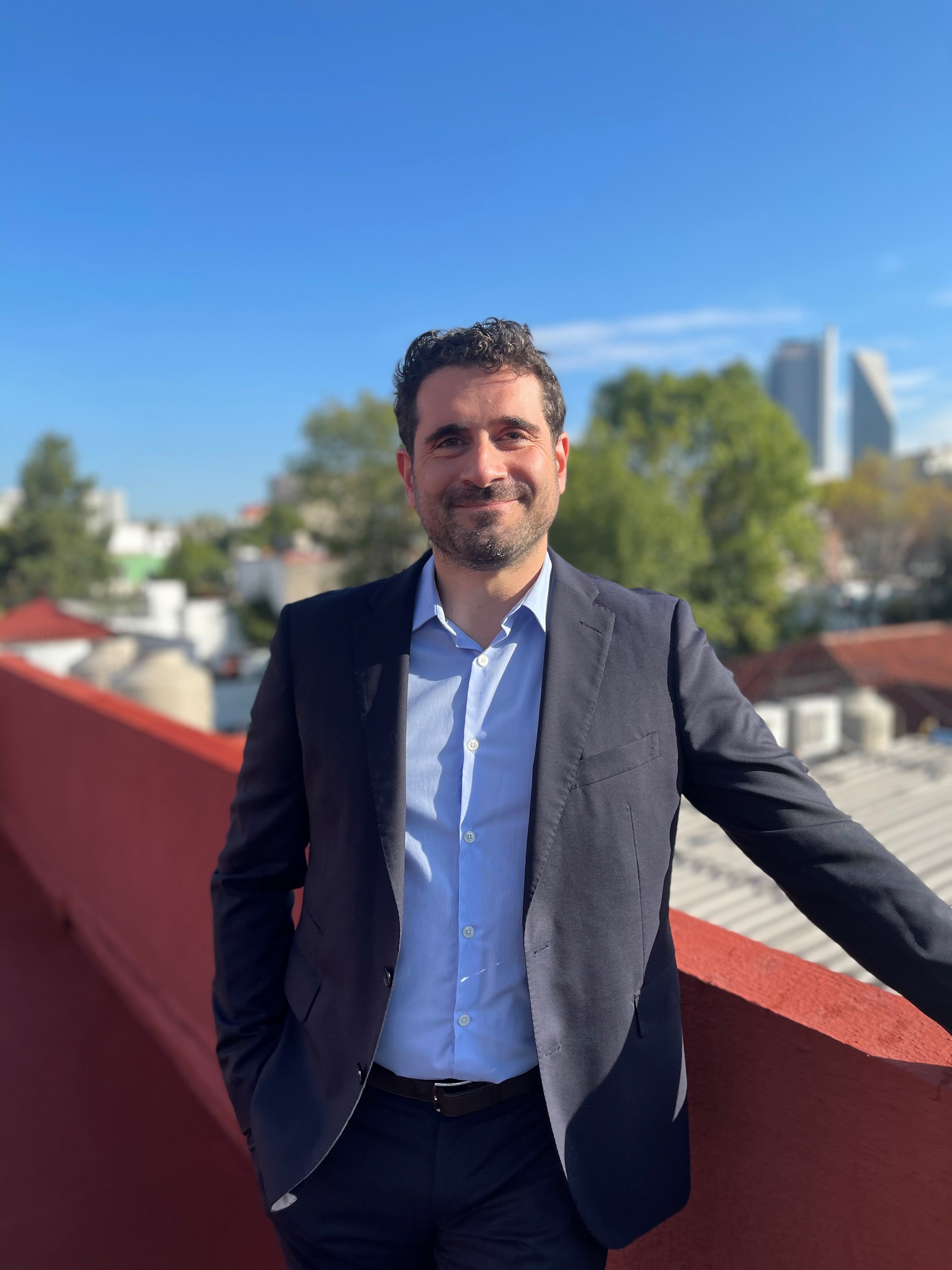The Astris Finance Interview
Despite a challenging 2020 for the Latin America region, Astris Finance still managed to make an impact helping clients to navigate the most visible and challenging transactions while continuing to mobilise new sources of capital in the region.
The senior management team for the Americas spoke to IJGlobal about the successes of 2020 and what the future holds for the boutique investment bank which started with a Latin American focus, and has grown into a global adviser active in the infrastructure and energy space across the Americas, Europe and South East Asia.
- This interview first appeared in IJGlobal Magazine, to access click here...
In 2020, Astris closed circa $2.3 billion of financing in 11 projects in the LAC region alone, across different sectors such as transport, renewable energy and power. These transactions were successfully executed in key markets in the region including Brazil, Chile, Peru, and Mexico, as well as in niche countries such as Uruguay. Transactions included greenfield financings, opportunistic refinancings and mezzanine loans. Deals closed demonstrated both the difficulties and creativity required to create success in a difficult year in Latin America and globally.
IJGlobal’s independent panel of judges said Astris “continues to impress in terms of innovation and transaction execution”. One judge said that Astris worked on “interesting deals and structures, across sectors and challenging jurisdictions in Latin America. Astris showcased its talents as a gifted financial adviser in a very demanding year”.
Another judge commented: “Astris is a truly independent and dedicated advisory team that earns their clients’ trust. It has an impressive presence across the region. Of particular note was their role in the senior and junior fund raising in the Uruguay greenfield railway”.
Tobey Collins (pictured right), managing director at Astris said: “When we set our goals for 2020, we had no idea that the world was about to implode. However, we felt we did rather well despite the pandemic and we were fortunate that we didn’t see transactions being cancelled, they just slowed down. In particular considering the circumstances, we are very pleased with what we achieved in 2020.”
An innovator
Innovative deals Astris worked on included designing new capital structures for an expanded group of lenders in a number of greenfield projects in the region. In 2020, Astris structured and successfully closed a true second-lien mezzanine financing, the Ferrocen transaction in Uruguay and also worked on sophisticated refinancings in Mexico, Chile and Peru valued at more than $800 million.
On the Ferrocen transaction, Astris dvised Grupo Via Central, a consortium owned by Sacyr, NGE, Saceem, and Berkes on the closing of a $75 million, 12-year subordinated tranche with IDB Invest and Global Infrastructure Partners (GIP). The term loan comprised a $7.5 million A-loan from IDB Invest and a $67.5 million B-loan from GIP.
The mezzanine debt was provided at the project company level under a second lien structure, with senior (4 tranches) and subordinated lenders (2 tranches) sharing common security and collateral, a rare structure for subordinated debt investments in Latin America which are more commonly placed at HoldCo level.
Despite the pandemic, challenges on both the project execution and thefinancing, Astris and the sponsors were able to execute the closing during construction with an international group of lenders and advisers, a testament to the dedication and creativity of all parties involved.
The successful closing of this deal illustrates Astris’ expertise in working across complex, multi-lender and multi-sponsor environments to maximise value for project sponsors and provide enhanced liquidity for key infrastructure assets in Latin America.
Another great example of Astris, work was successfully managing the closing of a refinancing in Mexico despite Covid-19 and political uncertainties with the Mexican energy sector, the latter particularly adverse for private investments.
The Pemcorp refinancing in Mexico comprised $170 million in debt with a 7-year mini perm backed by contracted revenues. The 142MW power plant (130MW of installed capacity + a 12MW battery system as a backup) sells its energy through a private PPA to an international car manufacturer in the state of Nuevo Leon, Mexico. The deal was closed with international lenders and generated an attractive recap for the sponsor.
Astris also worked on the closing of the ARCO 1 portfolio refinancing (El Arrayán – 115MW, wind & Conejo – 122MW, solar). The refinancing included 3 tranches, totalling $430 million, backed by contracted revenues (energy sold through PPAs to Minera los Pelambres, the biggest copper mine in Chile) with the surplus sold on the spot market.
The transaction combined a PPA with merchant financing in Chile backed by renewable assets with 6 international lenders, again completed during the pandemic but still generating significant value for the sponsor. It showcased the extent of Astris’ commitment to structure deals around the challenges its clients face.
Astris also structured and closed an opportunistic refinancing for clients Solarpack and Ardian in Peru which added significant value for the sponsors. Three solar projects were refinanced by a group of international project finance banks taking full advantage of attractive market conditions and the perceived risk reduction for the assets post-COVID.

Papassian adds that Astris’ policy is to very much “act as a rigorous, resourceful and patient partner throughout often long and complicated development and financing processes which are known to pass by ups and downs in the region: we hope our clients see us as true partners at the end of those bumpy roads we often have to take”.
Focus areas
While ESG plays a big part in the way investors structure projects, Astris has been incorporating this thematic for many years, as renewable energy is a core area of expertise of Astris, not only in LatAm but across the world (IJGlobal’s League Tables rank Astris #2 globally in renewable energy, with 16 closings in 2020).
“We know that some transactions get the ESG stamp and some don’t. But we’ve worked on numerous renewable energy projects that incorporated environmental and social benefits before it became a hot topic,” says Collins.
Collins adds: “A good example of this is the Cerro Dominador Solar CSP project from 2018 in Chile – the region’s first, and the world’s largest. That was an ultimate ESG project because it comprised a project that provided 100% renewable baseload power. Astris is just continuing that work on projects that incorporate ESG.”
Collins then points out that recently many clients are putting together portfolio strategies where there is a combination of wind and solar. “This allows you to provide a better profile of energy throughout the year because you can combine the solar resource with the wind resource.”
In 2020, Astris was able to close several refinancings and M&A transactions while the greenfield market slowed down (traditionally a big market for the firm) and this focus will continue for the rest of 2021 and beyond. However, Papassian says that the firm can already see that greenfield opportunities are picking up pace across both energy and infrastructure.
A new area of interest is digital infrastructure. However, while this is still largely a growing area in Latin America, Astris believes that most of the transactions so far have been corporate driven which is a space it does not operate in actively. “We are actively exploring ways project finance – the traditional backbone of our work -- can be applied to the digital infrastructure space,” says Collins.
Another sector of interest for Astris is e-mobility, which is picking up pace in the region. “This is an area we want to be more involved in, as it sits at the crossroads between our long dated track record in transportation in LatAm, and our expertise in battery-plays and storage solutions acquired through our renewable energy practice”, says Papassian.
Juan Francisco Toro (pictured right), director at Astris, adds: “These projects tend to be very capital-intensive and while you see savings in the future, selling the project at the start is a little tough as governments tend to be cautious with their scarce resources – even without pandemic-related expenses. This is where Astris comes in because we bring our experience on working with private investors to obtain efficient financing for these projects.”
Global Reach
The Latin American, Central American and Caribbean markets have always been a big focus for Astris and will remain so for the foreseeable future. Astris has offices in Mexico City, Sao Paulo, Bogota and Washington DC, from where the Astris team covers the Americas market.
The other key pole for Astris is in Europe where the team is particularly active in the renewables space. The firm’s European activity is handled from Paris, Madrid and Hamburg.
Astris’ business is very much in expansion mode in its two core markets. Astris is increasing activity in North America (both US and Canada) and actively ramping up the team in DC to pursue opportunities in the US. It has also been investing in Southeast Asia for the last 4-5 years and now has offices in Singapore and Ho Chi Min City.
“It’s a challenging, new region for us, but we’ve been quite successful in closing landmark transactions in Vietnam for instance, and building on those first closings South East Asia continues to be a big focus for us,” says Papassian.
“Our clients value the global footprint of Astris not so much in our ability to advise in different markets across the firm but in our ability to export our toolbox to new markets, where our clients expect us to leave no stones unturned to raise financing beyond the traditional go-to solutions. We are very proud of the few notable firsts we closed in LatAm in particular, which facilitated more investment in the region,” he adds.
Going into H2 2021, Astris is confident in the resilience of the pipeline of projects across the region, in spite of increasing political turbulence. Collins adds: “We can’t consider ourselves as post-pandemic because many countries in the region are still struggling with the virus, but if I look to 2022, I am more optimistic that projects – greenfield in particular – will return to a normal pace.”
Toro adds: “We are and will remain committed to the development of the infrastructure and energy markets across Latin America, where we believe our positioning as an independent adviser can truly make a difference to continue supporting our clients in the most efficient manner across all possible sources of financing we will need to mobilize to sustain the region’s path to full economic recovery.”
Request a Demo
Interested in IJGlobal? Request a demo to discuss a trial with a member of our team. Talk to the team to explore the value of our asset and transaction databases, our market-leading news, league tables and much more.



